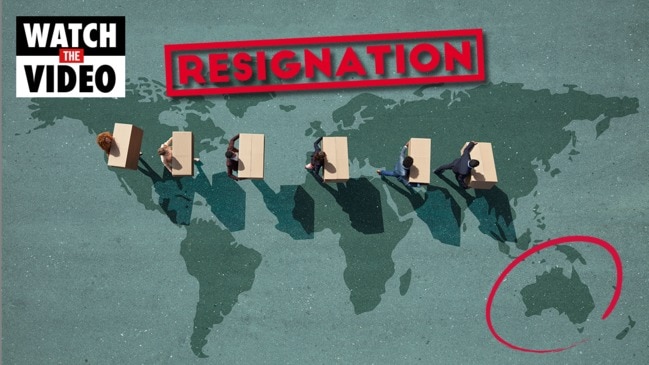CV mistakes complacent Australian jobseekers are making
Aussie jobseekers need to spend 10 minutes regularly looking after their career, or they will lose out on making more money. This is how to do it.

Careers
Don't miss out on the headlines from Careers. Followed categories will be added to My News.
Worker shortages are leading to complacency among jobseekers, with almost a quarter of Australians applying for roles using an outdated resume.
Research by hiring platform Indeed shows 27 per cent of Australians have not updated their CVs for at least a year, while 22 per cent are applying for jobs using resumes with old information.
Updating a CV is a low priority for most jobseekers, with one in three admitting they would rather clean or do the laundry than revise their resume.
Best candidate still wins
The current employment market, which heavily favours jobseekers, may be to blame for the failure to update CVs – but Indeed career coach Sally McKibbin says it’s still a task that should not be ignored.
In general, CVs should be updated at least annually, as well as immediately before applying for a role to ensure it addresses the selection criteria, she says.
“If you haven’t updated your CV then it could mean you miss out on the role you want,’’ she says.
“While (employers) are desperate, what if there’s that person that has updated their CV, or has a skill that you haven’t said (listed on your CV), that gets the interview, or the job?”
McKibbin says jobseekers should remember to include soft skills in the resume, which are often as important to employers as technical skills.
It’s not about you

CVs must demonstrate how hiring a candidate will benefit the employer, says Athena Ali, a public sector job application specialist from The Get Noticed Coach.
“The main thing is making (a resume) all about them (the employer) – not you,” she says.
“A mistake I see often is where people will just talk about the duties of their (previous) roles and what they did but they don’t talk about the value they can bring to the new company.
“Look at it from the employer’s perspective – they’re not just filling a role, they want to be solving a problem when they hire you.”
She suggests getting in touch with the contact person listed on the job ad, and asking why the position is being recruited, to help tailor the resume to the company’s needs.
Be quick
Recruiters can interview for a role before applications have even closed. So having a well-maintained resume that requires only minor changes before submission may work in a candidate’s favour, Ali says.
“Companies want to recruit straight away,” she says. “They won’t wait to get a whole pile before they start selecting (applicants to interview) so … being fast (to apply) is something that can work to your advantage.”
While it’s typically recommended resumes are kept to one page, Ali says unless the advertised role suggests otherwise, it can run longer if everything included is directly relevant to the position.
A cover letter is also essential.
Update regularly to avoid ‘chore’

Spending four hours spent overhauling her resume is an experience Annie De Pasquale never wants to repeat again.
The Melbourne-based town planner had not touched her resume in six years, but was forced to update it to move into a different speciality within her field.
“It was definitely a chore, that’s for sure. It took ages,” says De Pasquale.
“It was a big effort to get it up-to-date with all the projects I had undertaken and the experience I had and obviously the referees (listed in the updated resume) had all changed (from the previous resume) too.
“After such a long time, you forget a lot of things that you’ve done and all those fine details of a particular project that you need for your CV and to answer the selection criteria (of a role).”
De Pasquale’s hard work paid off and she successfully moved to a new contract position. Since then, she has committed to regular updates of her resume to apply for further contract roles.
“I learned my lesson,” she says.
“Now, I update it every six months or every year – basically every time I get a new contract, I will just use dot points to list the duties and the skills needed for that role so that I don’t forget anything, then I just make a few tweaks when I need (to submit it for another role).
“Spending 10 minutes here and there saves that four-hour overhaul that you would have to do otherwise.”
More Coverage
Originally published as CV mistakes complacent Australian jobseekers are making




